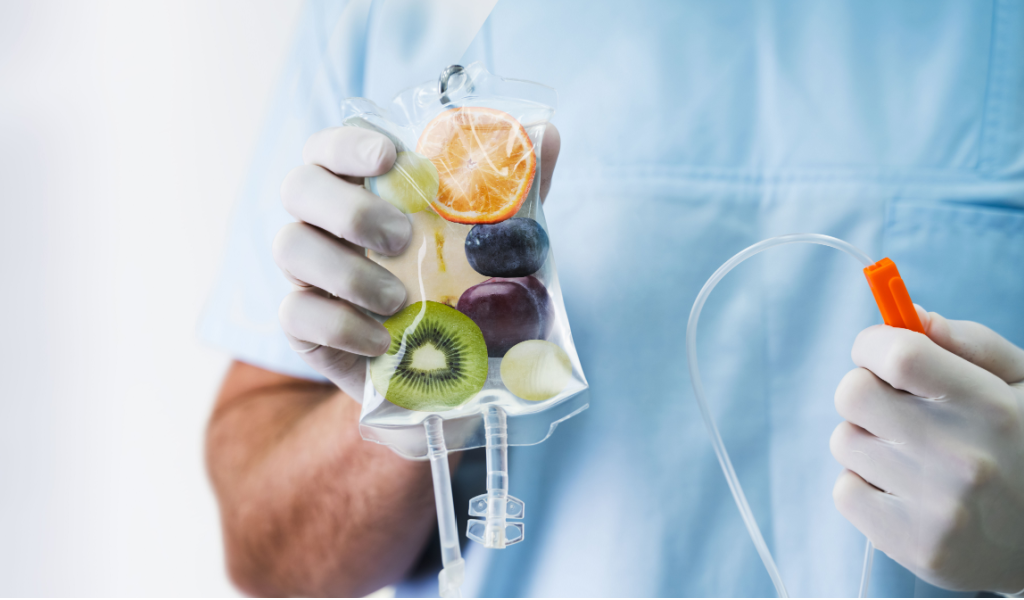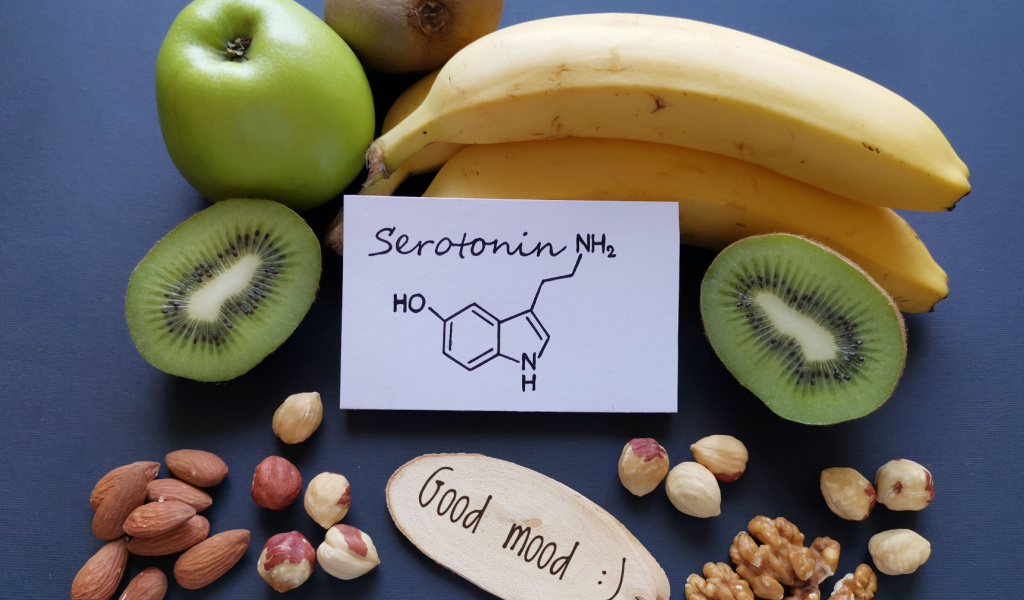If you only eat pineapple when it’s served at a summer barbecue or in a pina colada, you’re seriously missing out!

The pineapple is an extraordinary fruit. With its spiky exterior and sharp crown, it can seem a bit intimidating at first. But once you get rid of the outer layer, you reveal a deliciously sweet and tangy inside that is nothing like anything else.
This tropical fruit, indigenous to South America, can be eaten fresh or frozen. It can be the perfect addition to almost any meal and is not slacking in the nutrition section. In fact, there are countless benefits of pineapple – and that’s not just us saying that either!
Pineapple is a guilt-free food that tastes like a guilty pleasure. It is loaded with vitamins and minerals including thiamin, riboflavin, vitamin B-6, and folate, among many others. It is also low in fat and rich in fiber, water, and antioxidants.
And the sugar in this fruit? That’s not so bad, either.
Sarah Rueven, RD, CDN, and the founder of Rooted Wellness said, “Many people are bothered about eating too much fruit because fruit accommodates carbohydrates and fructose- naturally occurring sugars,”. But pineapple isn’t something that you should be too concerned about, he says, adding, “Including pineapple in your diet is an ideal and easy way to boost overall health rather than eating in its whole form”.
Ways to Eat More Pineapple Daily
Adding pineapple to your daily diet not only helps you satisfy your sweet cravings but also provides you with plenty of fiber for repletion and overall health. Here are some innovative ways to include pineapple in your meals:
Breakfast: Prepare a wholesome pineapple salad or blend fresh or frozen pineapple into smoothies, bake it into healthy chocolate-covered pineapple doughnuts, or simply serve the freshly cut pieces of pineapple either as is or with a few pinches of salt or pepper or castor sugar along with your usual breakfast grain-of-choice.
Lunch: Add thinly-sliced pineapple to a grilled chicken sandwich, assemble a pineapple BBQ veggie burger, or make Hawaiian Pineapple fried rice with a combo of chicken thighs dipped in pineapple juice and soy sauce and spices.
Dinner: Try bacon-wrapped pineapple mozzarella rings, include pineapple chunks in your favorite shish kebab recipe, make a puff pastry with grilled pineapple, or try pineapple salsa for your tacos and nachos.

Now that you’ll never run out of ways to eat it, here are 7 science-backed benefits of pineapple.
Aids In Digestion
Certain foods you eat, although delicious, can sometimes make you feel heavy, resulting in indigestion. When you’re having tummy troubles, eating some pineapple or drinking some pineapple juice can help relieve the feeling of fullness and make sure everything is up and working in your digestive system.
Pineapple is well-known for its expertise in promoting digestion. It contains an enzyme called bromelain, which breaks down protein and aids in digestion. This is why pineapple is described as a natural “meat tenderizer”.
Amy Shapiro, RD, CDN, and founder of Real Nutrition, says that “the bromelain and fiber present in pineapple work jointly to promote a healthy functioning digestive system”. The bromelain can help reduce any inflammation within the stomach lining, while the fiber helps move things along.
Relieves Arthritis Symptoms
Pineapple is rich in vitamin C and the enzyme bromelain, which not only reduces inflammation but also decreases the pain and swelling caused in both osteoarthritis and rheumatoid arthritis.
A study conducted in 2004 in Clinical Rheumatology published that “An oral supplement with bromelain for six weeks taken by patients reported less arthritis pain when compared to a group taking an NSAID for pain relief.”
Enhances Bone and Joint Health
Manganese plays an important role in strengthening your bones. Pineapple is rich in manganese, which may help prevent bone loss in patients with osteoporosis. Moreover, manganese may reduce pain when it is combined with zinc, copper, and calcium. Pineapple contains all these components in one neat little package, which is why it can play a vital role in enhancing bone health.
According to a 2000 study in Osteoarthritis and Cartilage, individuals who received glucosamine, chondroitin, and manganese supplements reported fewer symptoms than those in the control group. Another 2008 study published in the Annals of the Academy of Medicine discovered a connection between manganese and the thinning of the spine in menopausal women with osteoporosis.
Serotonin Boost
Pineapple acts as a natural mood enhancer due to the presence of serotonin. Regular consumption of pineapple makes your brain and body feel good. According to Shapiro, “Pineapple is rich in tryptophan-an amino acid which is used to create one of our most important mood-boosting neurotransmitters-serotonin.”
Serotonin acts as a messenger to the brain and is responsible for satisfaction and good mood. Depression and anxiety result when the level of serotonin is too little, which is why the level of serotonin plays an important role in one’s mental health. Some studies suggest that when compared to tricyclic antidepressants, tryptophan supplementation is proven to be an effective depression treatment.
Keeps You Looking Amazing
Eating more pineapple isn’t just good for your internal organs, it also helps keep you looking good on the outside. In fact, fresh pineapple juice can help fade sun damage and age spots when topically applied.
Research conducted by the National Centre for Complementary and Integrative Health found that the topical application of bromelain, pineapple’s amazing enzyme, can be useful in aiding the skin healing process of burns in both humans and animals. This is why you will find lots of cosmetics containing pineapple enzymes that help remove dead skin cells and leave your skin looking fresh and gleaming.
Nourishes Your Immune System
Pineapple helps boost your immune system by aiding in multiple processes of the human body, many of which we’ve already discussed. Shapiro says, “One cup of pineapple pieces serves up 131 percent of your needs thus it delivers your daily vitamin C requirements”.
According to Rueven, that’s definitely not anything to sneeze at. Vitamin C not only boosts your immune system function, but it can also assist your body form collagen. Collagen is the protein which in charge of the elasticity and health of your skin, muscles, and joints.
Loaded With Antioxidants
Pineapples are rich in flavonoids and phenolic acids, two antioxidants that safeguard your cells from free radicals that can seed chronic diseases. Particularly, flavonoid compounds are associated with minimizing the impact of age-correlated conditions, from asthma to heart disease.
According to reviews published in the British Journal of Nutrition in 2008 and the Journal of Nutrition and Biochemistry in 2013, flavonoids may play a role in stabilizing blood sugar levels and lowering insulin resistance, as well as suppressing inflammation in the central nervous system.
Conclusion
Pineapples are one of the best summer fruits and a fantastic standalone snack. Whether you bake it, cut it into slices, blend it to make a smoothie, or simply consume it as pineapple-infused water, all are great choices.
However, do consult your nutritionist before including it in your diet plan or a post-workout snack. Focus on keeping the overall diet varied and including an assortment of nutrients in the foods you consume, rather than specific foods.



